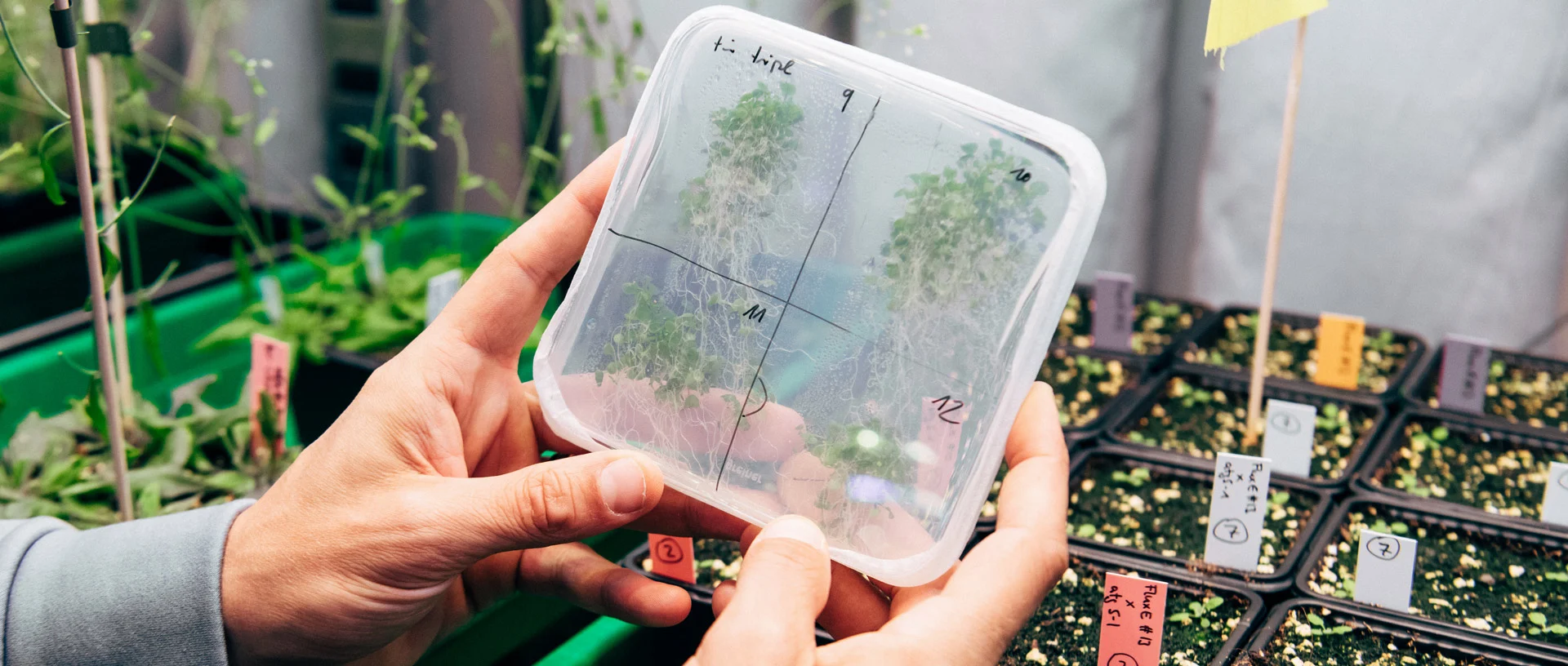Why are we drawing attention to this issue? In European genetic engineering law, recent advancements in gene editing techniques have not yet been addressed. In light of this, a process is under way to revise the "Directive 2001/18/EC of the European Parliament and of the Council on the deliberate release into the environment of genetically modified organisms." A new draft is expected in the coming days after completion of scientific studies and a broad consultation process.
The development of gene editing with "genetic scissors" (CRISPR/Cas) is a milestone in the history of science. Emmanuelle Charpentier and Jennifer Doudna received the 2020 Nobel Prize in Chemistry for the description of CRISPR/Cas. Gene editing is based on a natural molecular biology principle in which already existing genes are specifically altered. Similar alterations could also occur through conventional breeding, but are much slower to be achieved using conventional methods and would have to be separated from any unwanted changes occurring at the same time through a lengthy selection process based on trial-and-error. Thus, the method based on gene editing is much faster and more targeted than conventional methods.
Gene editing is a highly efficient tool in research as it contributes to the understanding of gene functions. It creates new opportunities in curing diseases, but also in breeding plants that are more productive, resilient, healthy, compatible and adapted to a changing environment. In nearly 700 studied examples in more than 40 plant species, gene editing has yielded greater pest resistance, improved protein or fatty acid compositions andfewer incompatible ingredients. Other breeding goals include more drought- and heat-resistant crops with less soil use and greater resilience. Green genetic engineering can therefore make a significant contribution to adapting to the consequences of climate change and for a more sustainable agriculture. It is therefore important not to create insurmountable barriers to research, field testing and market entry.
Science is advocating legal assessment of plants after editing their genes using the same procedures as for plants deriving from conventional breeding. The respective plants should be evaluated according to their properties, not according to the method of their production. We endorse the corresponding recommendations of the German National Academy of Sciences Leopoldina, the European Academies Science Advisory Council and the EU initiative Sustainable Agriculture through Genome Editing.
Our appeal is directed at political decision-makers, interest groups and NGOs: an ideologically driven debate fuels widespread public concern and plays into the hands of science skepticism. Therefore: Get informed by science! Enter into a dialogue with experts to clarify questions about gene editing. Listen and check what science has to offer in order to form a well-founded opinion.
Heinz Faßmann – President ÖAW
Sebastian Schütze – Rector Universität Wien
Christof Gattringer – President FWF
Veronika Sexl – Rector Universität Innsbruck
Martin Hetzer – President ISTA
Joachim Reidl – Vice rector Universität Graz
Wolfgang Knoll – Managing Director AIT
Eva Schulev-Steindl – Rector Universität für Bodenkultur
Jan-Michael Peters – Sci. Director IMP
Sabine Seidler – Rector TU Wien
